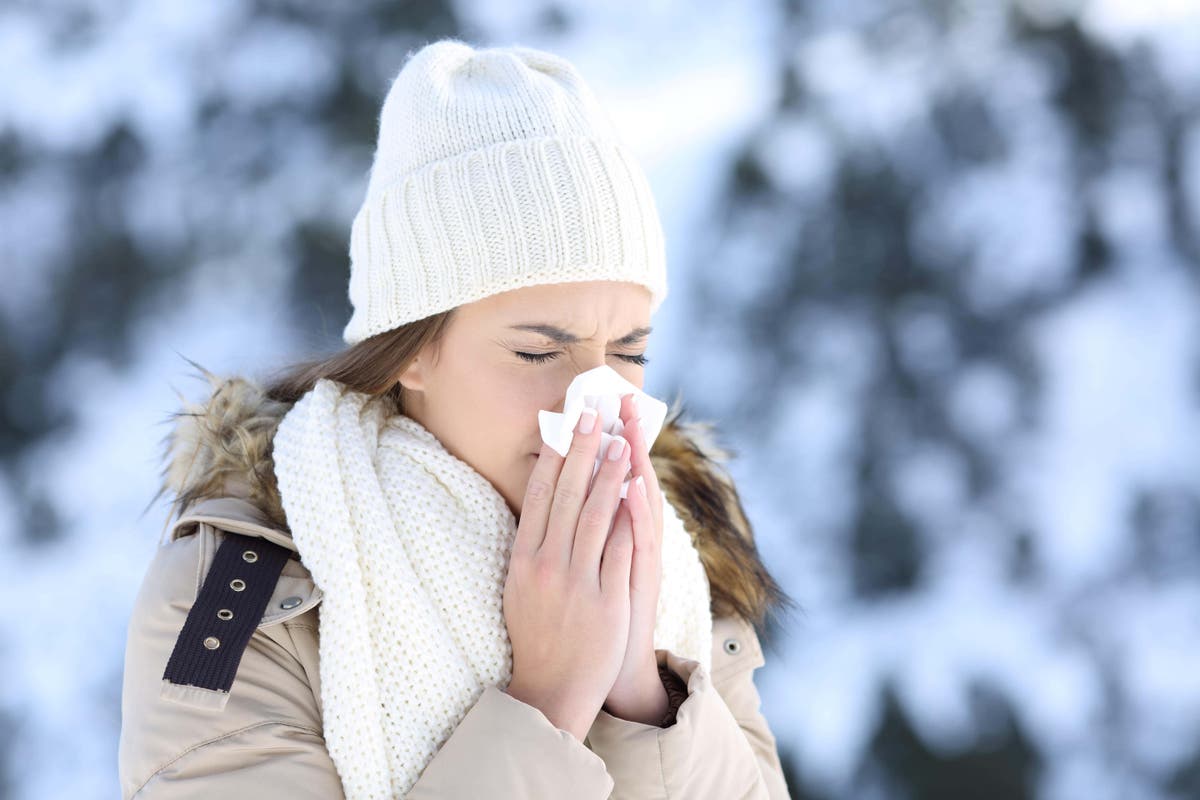This website uses cookies so that we can provide you with the best user experience possible. Cookie information is stored in your browser and performs functions such as recognising you when you return to our website and helping our team to understand which sections of the website you find most interesting and useful.

Your support helps us to tell the story
From reproductive rights to climate change to Big Tech, The Independent is on the ground when the story is developing. Whether it's investigating the financials of Elon Musk's pro-Trump PAC or producing our latest documentary, 'The A Word', which shines a light on the American women fighting for reproductive rights, we know how important it is to parse out the facts from the messaging.
At such a critical moment in US history, we need reporters on the ground. Your donation allows us to keep sending journalists to speak to both sides of the story.
The Independent is trusted by Americans across the entire political spectrum. And unlike many other quality news outlets, we choose not to lock Americans out of our reporting and analysis with paywalls. We believe quality journalism should be available to everyone, paid for by those who can afford it.
Your support makes all the difference.
As large parts of the UK brace for heavy snow and freezing rain this weekend, with temperatures dipping as low as minus 5°C overnight, experts are urging people to take extra precautions to stay healthy.
The UK Health Security Agency (UKHSA) has issued cold weather health alerts for all of England, warning of a week of wintry conditions ahead.
In light of the harsh weather, we have spoken to a GP who has explained how the cold can affect our health, and has also shared some effective ways to boost your immune system during the cold snap.
How does cold weather affect your immune system?
“Cold weather itself doesn’t weaken your immune system, but the conditions associated with it can make you more susceptible to infections,” explains Dr Chun Tang, GP at Pall Mall Medical. “In winter, we spend more time indoors with others, which makes it easier for germs to spread.
“Additionally, cold air can dry out the mucous membranes in your nose and throat, reducing their ability to trap and fight off bacteria and viruses. Lower sunlight exposure can also reduce vitamin D levels, which are crucial for immune health.”
Who is more likely to be affected?
“People with weakened immune systems are more vulnerable during the colder months,” says Tang. “This includes older adults, young children, pregnant individuals, and those with chronic conditions like diabetes, asthma, or heart disease.
“It’s important for these groups to take extra precautions, such as staying warm, eating nutritious food, and avoiding crowded places when possible.”
Here are 8 ways to boost your immune system during the cold snap…
1. Aim for 7-9 hours of sleep per night
“Aim for consistent, quality sleep of 7-9 hours each night, and try to maintain a regular sleep schedule, even on weekends,” advises Tang.
“Sleep is when your body repairs itself and produces infection-fighting cells and antibodies, so chronic sleep deprivation can reduce the production of these vital cells, making it harder for your body to ward off illness.”
2. Minimise stress
Consider practising mindfulness, deep breathing or meditation to alleviate stress, as it can compromise your immune system.
“When you’re stressed, your body releases cortisol, a hormone that can suppress immune function if levels remain high for too long,” explains Tang. “Chronic stress also promotes inflammation, which can further weaken your body’s defences.
“Managing stress through activities like exercise, meditation, or even a relaxing hobby can significantly support your immune health.”
3. Wrap up warm
“As the temperature drops, keeping warm over the winter months can help to prevent colds and flu,” says Claire Nevinson, superintendent pharmacist at Boots. “Try swapping your normal duvet for a heated blanket or choosing a self-heating mattress topper, but be sure to follow the instructions on how to use safely.
“Layering up and hand warmers can also be great ways to fight the cold, especially if you’re going outdoors.”
4. Eat foods rich in vitamins and antioxidants
“Citrus fruits like oranges and lemons provide vitamin C, which supports immune function, and leafy greens like spinach and kale are loaded with vitamins A and E,” says Tang. “Probiotic-rich foods like yoghurt and fermented foods like kimchi can improve gut health, which is closely tied to immunity.
“Nuts, seeds, and fish offer zinc and omega-3 fatty acids, both of which are important for fighting inflammation.”
5. Stay hydrated
“Even in winter, drinking water helps keep your immune system functioning well,” says Tang.
6. Exercise
“Moderate exercise like walking or yoga helps keep your immune system in good shape,” says Tang.
7. Consider taking extra vitamins
“Take key vitamins, including C and D, and zinc, which are especially beneficial for immune health,” suggests Tang.
8. Keep up to date with your vaccinations
“The most important winter vaccination is the flu shot, which protects against the seasonal flu virus,” says Tang. “Additionally, some individuals – especially older adults, young children, pregnant people, and those with certain health conditions – should consider the pneumococcal vaccine and updated COVID-19 boosters.
“Not everyone is eligible for all vaccines, so it’s best to discuss your specific needs with your doctor.”



 Africana55 Radio
Africana55 Radio 
